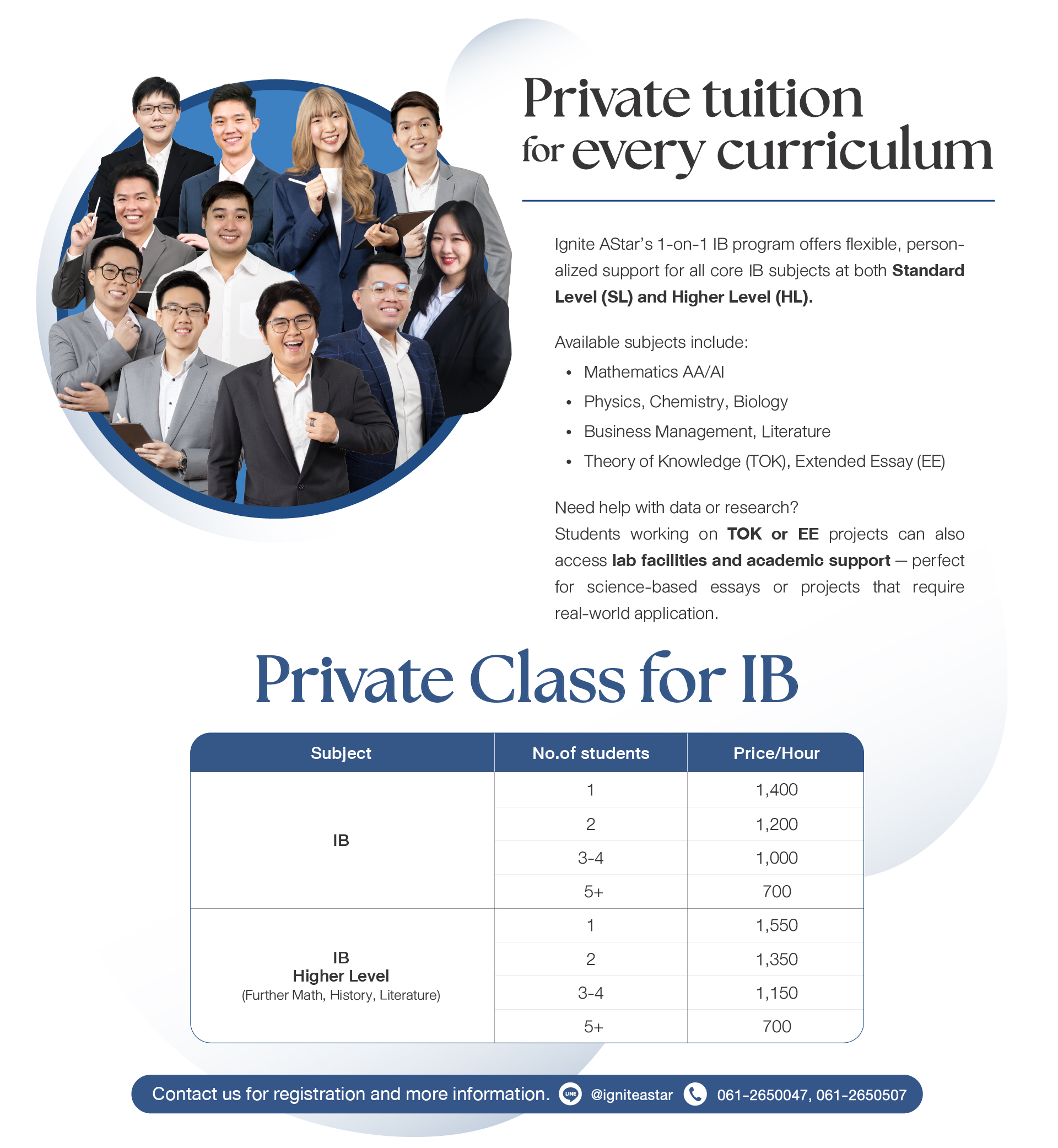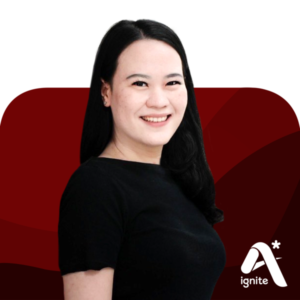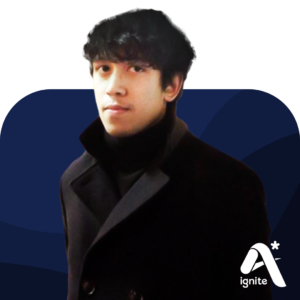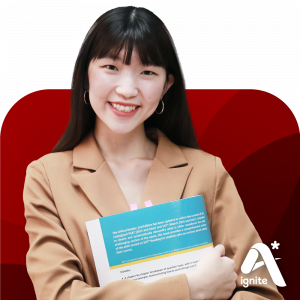IB is a globally recognized education program, designed to develop students into well-rounded, critical thinkers with global awareness. The most popular pathway is the IB Diploma Programme (IBDP), which is a two-year program for students aged 16–19 (Year 12-13).
Ignite AStar Helps You Thrive in the IB Programme
Ignite AStar supports students in Higher and Standard Level IB subjects, including Math, Physics, Chemistry, Business Management, and essential components like Extended Essay (EE) and Theory of Knowledge (TOK). Each course is designed to help students think critically, perform academically, and succeed in the IB Diploma Programme.
Our Courses

IB Private 1 on 1
Students can choose to study one-on-one with a top-profile tutor or form their own small private group.
With full flexibility, you can select the subjects, schedule, and learning style that best fits your needs.

What our students are saying
![[Astar]Congrats Astar students-02](https://www.igniteastar.com/wp-content/uploads/2024/11/AstarCongrats-Astar-students-02-scaled.jpg)
![[Brief] Promote IB K'Kwaang + Ref-01](https://www.igniteastar.com/wp-content/uploads/2023/08/Brief-Promote-IB-KKwaang-Ref-01.jpg)
![[Brief] Ref IB Students-04](https://www.igniteastar.com/wp-content/uploads/2023/08/Brief-Ref-IB-Students-04.jpg)
![[Brief] Ref IB Students-03](https://www.igniteastar.com/wp-content/uploads/2023/08/Brief-Ref-IB-Students-03.jpg)
![[Brief] Ref IB Students-02](https://www.igniteastar.com/wp-content/uploads/2023/08/Brief-Ref-IB-Students-02.jpg)
IB Biology
ครูเกล
(Sopitsuda Bunnag)
ครูเคนจิ
(Jirapat Wongmahacharoen)
IB Chemistry
ครูเกม
(Pawatsanai Samutpraset)
ครูนที
(Natee Angboonpong)
IB Physics
ครูแชมป์
(Kanin Duangkaewthanakun)
ครูโน๊ต
(Nuttapon Preedasak)
IB English
ครูธัญญ่า
(Thanyarat Rattanayotinanont)
ครูกวาง
(Kirana Kittikoonthana)
IB Biology
ครูเคนจิ
(Jirapat Wongmahacharoen)
ครูเกล
(Sopitsuda Bunnag)
IB Chemistry
ครูเกม
(Pawatsanai Samutpraset)
ครูนที
(Natee Angboonpong)
IB Physics
ครูแชมป์
(Kanin Duangkaewthanakun)
ครูโน๊ต
(Nuttapon Preedasak)
IB English
ครูกวาง
(Kirana Kittikoonthana)
ครูธัญญ่า
(Thanyarat Rattanayotinanont)
FAQ
What is the IB Diploma Programme (IBDP)?
The IB Diploma Programme is a two-year international curriculum for students aged 16–19 (Year 12-13). It emphasizes critical thinking, global perspective, and interdisciplinary learning, and is highly respected by top universities worldwide.
IB Diploma Programme (IBDP) คืออะไร?
IB Diploma Programme คือ หลักสูตรนานาชาติระยะเวลา 2 ปี สำหรับนักเรียนอายุ 16–19 ปี (เทียบเท่าระดับชั้น Year 12–13) โดยหลักสูตรนี้มุ่งเน้นการคิดเชิงวิพากษ์ มุมมองระดับโลก และการเรียนรู้แบบบูรณาการข้ามสาขาวิชา ซึ่งได้รับการยอมรับอย่างสูงจากมหาวิทยาลัยชั้นนำทั่วโลก
How are IB students graded?
Each subject is graded on a scale of 1 to 7, with up to 3 additional points from the Extended Essay (EE) and Theory of Knowledge (TOK)—making a maximum score of 45.
To receive the full IB Diploma, students must also complete and pass CAS (Creativity, Activity, Service), which is a core requirement alongside EE and TOK.
การวัดคะแนนของหลักสูตร IB
แต่ละวิชาจะได้รับการประเมินคะแนนในช่วงตั้งแต่ 1 ถึง 7 โดยสามารถได้คะแนนเพิ่มเติมสูงสุดอีก 3 คะแนนจาก Extended Essay (EE) และ Theory of Knowledge (TOK) ทำให้คะแนนรวมสูงสุดอยู่ที่ 45 คะแนน
เพื่อให้ได้รับประกาศนียบัตร IB Diploma ผู้เรียนจะต้องผ่านกิจกรรม CAS (Creativity, Activity, Service) ซึ่งเป็นข้อกำหนดหลักควบคู่กับ EE และ TOK
What IB subjects do you offer?
We support both Higher Level (HL) and Standard Level (SL) subjects, organized by topic across key IB subject groups: Language & Literature, Individuals and Societies, Sciences, Mathematics (AA & AI), English, Economics, Psychology, and Business Management.
We also offer support for Theory of Knowledge (TOK) and the Extended Essay (EE).
IB เปิดสอนวิชาอะไรบ้าง?
มีคอร์สที่เหมาะกับวิชาในระดับ Higher Level (HL) และ Standard Level (SL) โดยจัดตามหัวข้อในกลุ่มวิชาหลักของ IB ได้แก่ ภาษาและวรรณกรรม, บุคคลและสังคม, วิทยาศาสตร์, คณิตศาสตร์ (AA และ AI), ภาษาอังกฤษ, เศรษฐศาสตร์, จิตวิทยา และการจัดการธุรกิจ
นอกจากนี้ ยังมีคอร์สสำหรับวิชา Theory of Knowledge (TOK) และ Extended Essay (EE) ด้วยเช่นกัน
When are IB exams held?
IB exams take place twice a year:
- May session – main exam period
- November session – for schools with different calendars or for retakes
การสอบ IB จัดขึ้นเมื่อไหร่?
การสอบ IB จัดขึ้นปีละ 2 ครั้ง:
รอบเดือนพฤษภาคม – เป็นช่วงเวลาสอบหลัก
รอบเดือนพฤศจิกายน – สำหรับโรงเรียนที่มีปฏิทินการเรียนต่างออกไป หรือสำหรับการสอบซ้ำ
How many levels are there in the IB exams?
The IB exams have two levels:
Standard Level (SL): This level covers basic content, but it may not be comprehensive enough for university applications.
Higher Level (HL): This level is more challenging, with deeper content. Some subjects may allow for credit transfer when entering university.
การสอบ IB มีกี่ระดับ?
การสอบ IB นั้นมี 2 ระดับ ได้แก่
- Standard Level (SL) เรียนเนื้อหาพื้นฐาน แต่อาจจะแน่นไม่พอยื่นใช้เข้ามหาวิทยาลัยได้
- Higher Level (HL) เรียนยาก เนื้อหาลึกกว่า โดยบางวิชาสามารถโอนหน่วยกิตได้ตอนเข้ามหาวิทยาลัย
How many subjects are offered in the IB program?
The IB Diploma Program consists of six subject groups as follows:
- Studies in Language and Literature (Language A)
- Language Acquisition (Language B), such as French, Spanish, German
- Individuals and Societies, such as Philosophy, Economics, and Business and Management
- Sciences, such as Physics, Chemistry, and Biology
- Mathematics, such as Mathematics (SL, HL), Further Mathematics
- The Arts, such as Visual Arts, Film, Music, Dance, and Theatre
Students are required to choose 3-4 subjects to be studied at Higher Level (HL), which are considered core subjects, and the remaining subjects will be taken at Standard Level (SL). It is recommended that Higher Level subjects align with the intended university major. If the grade in a Higher Level subject is low, students can switch it to Standard Level.
IB มีทั้งหมดกี่วิชา?
IB Diploma Program มีวิชาอยู่ 6 กลุ่มดังต่อไปนี้
- Studies in language and literature (Language A)
- Language acquisition (Language B) เช่น French, Spain, German
- Individuals and Societies เช่น Philosophy, Economics, and Business and management
- Sciences เช่น Physics, Chemistry, and Biology
- Mathematics เช่น Mathematics (SL, HL), Further Mathematics
- The Arts เช่น Visual arts, Film, Music, Dance, and Theatre
ซึ่งผู้เรียนจำเป็นต้องเลือกว่าในวิชาเหล่านี้ 3-4 วิชาไหนจะเลือกเป็น Higher level ที่เรียนเป็นวิชา Core หลัก และวิชาที่เหลือจะนับเป็น Standard level โดยวิชา higher ควรเป็นวิชาที่สอดคล้องกับคณะที่อยากจะเรียนตอนเข้ามหาวิทยาลัย ถ้า Higher เรียนเเล้วได้เกรดที่ต่ำก็ drop เป็น Standard ได้
Grading System and Assessment
Scores range from 1 (the lowest) to 7 (the highest), and students must complete written examinations in each subject, which are assessed by independent IB examiners, along with internal assessments evaluated by the school. The maximum IB score is 45 points, which includes 42 points from six subject groups (each worth up to 7 points), and an additional 3 points from the Theory of Knowledge (TOK) and the Extended Essay (EE). To be awarded the IB Diploma, students must achieve a minimum of 28 points and successfully complete the Creativity, Activity, Service (CAS) component.
ระบบคะแนน (Grading) และการประเมิน (Assessment)
คะแนนเริ่มต้นที่ 1 ต่ำสุด ถึง 7 สูงสุด โดยนักเรียนต้องผ่านข้อสอบเขียนของแต่ละวิชา ซึ่งตรวจโดยกรรมการอิสระของ IB บวกกับการประเมินผลรวมจากโรงเรียน
คะแนนเต็มของ IB คือ 45 ซึ่งจะมาจาก 6 กลุ่มวิชา ที่มีคะแนนเต็มวิชาละ 7 คะแนน รวมเป็น 42 คะแนน และอีก 3 คะแนนจากผลงานส่วน TOK และ EE)
นักเรียนต้องได้อย่างน้อย 28 คะแนนและผ่านการประเมิน creativity, action, service จึงจะได้ประกาศนีบัตร
How is the IB different from other education systems?
Encourages students of all ages to think critically, challenge assumptions, and ask meaningful questions.
Applies research-based knowledge and connects with a global network of IB schools.
Supports students in exploring social contexts both within their own communities and around the world.
Develops language skills and promotes multilingualism among students.
IB แตกต่างจากระบบการเรียนอื่นอย่างไร?
- กระตุ้นให้นักเรียนในทุกช่วงวัยคิดเชิงวิพากษ์ สนใจที่จะท้าทายกับสมมุติฐานและตั้งคำถามในเรื่องต่างๆ
- ประยุกต์ใช้ข้อมูลวิจัยและโรงเรียนในเครือข่ายทั่วโลก
- สนับสนุนให้นักเรียนในทุกช่วงวัยศึกษาบริบททางสังคมทั้งในชุมชนของตัวเองและของโลก
- พัฒนาทักษะภาษา ให้นักเรียนพูดได้หลายภาษา









